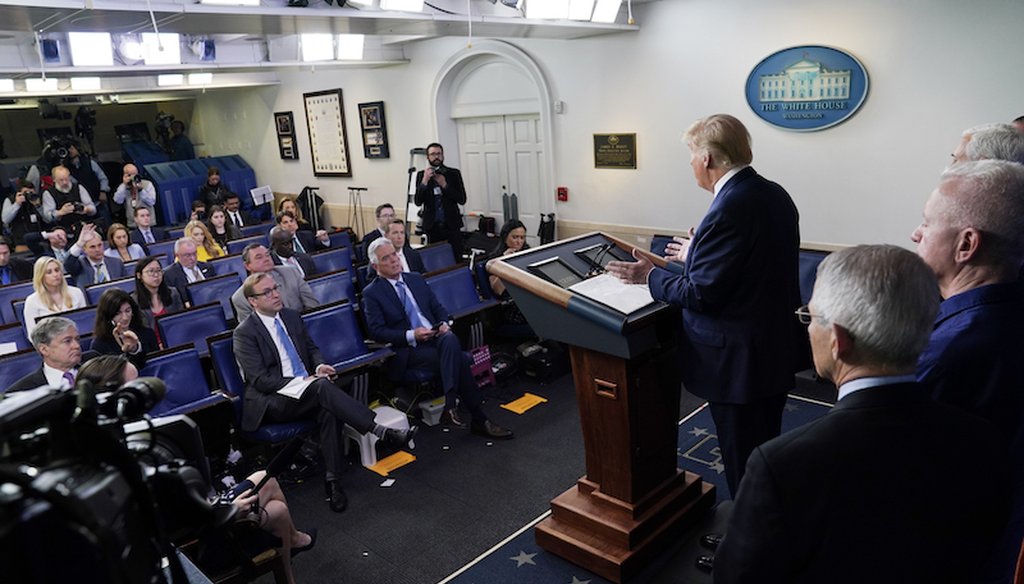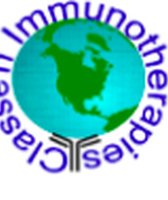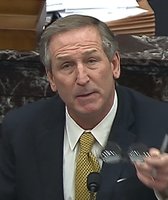Stand up for the facts!
Our only agenda is to publish the truth so you can be an informed participant in democracy.
We need your help.
I would like to contribute

President Donald Trump speaks during a press briefing with the coronavirus task force, at the White House, Tuesday, March 17, 2020, in Washington. (Evan Vucci/AP)
If Your Time is short
-
Federal, state and local governments are constantly updating their recommendations and mandates about COVID-19.
-
While the Trump administration says its ban on travel from Europe, China and other COVID-19 hotspots will prevent the virus’ spread, some experts doubt it will have much of an effect.
-
You will know when martial law is under effect, and what we are seeing now is not it.
In this edition of Ask PolitiFact, we tracked down answers to your questions about the federal government’s response to the coronavirus pandemic.
We spoke to experts and answered reader questions about government control of test kits, the rationale behind travel bans, what martial law is, and more.
Here’s how to submit your questions for our reporters to answer. For more reporting on coronavirus seasonality, immunity and transmission, check out this story.
The administration says that 75% of the coronavirus cases in the U.S. are brought here through travel. This is their rationale for the travel bans. Is this true?
That number is inaccurate, and we found no examples of the Trump administration using it. (Trump has vaguely blamed European travelers for some cases but didn’t use a number.)
According to the Centers for Disease Control and Prevention, there were 3,487 confirmed cases of COVID-19 in the United States as of March 16. Of those, 205 were travel-related, 214 were infected through "close contact" and 3,068 were under investigation.
So for most cases, we still don’t know how they got the infection.
While early cases of the coronavirus were linked to travelers returning from China, where the virus first broke out in December, the CDC says community spread is occuring in several U.S. states. That means people are testing positive for COVID-19 without knowing how or where they became infected.
On March 11, Trump announced a ban on travel from 26 European countries. On March 14, the administration extended that ban to the United Kingdom and Ireland. In his address, Trump said clusters of the coronavirus in the U.S. were "seeded by travelers from Europe" without using numbers.
The World Health Organization advises against travel bans, saying they are "usually not effective in preventing the importation of cases but may have a significant economic and social impact."
RELATED: 7 ways to avoid misinformation during the coronavirus pandemic
Did PolitiFact check whether Trump did not accept WHO tests?
The World Health Organization told us they never offered testing kits to the United States. That’s to be expected, the WHO said, because "the U.S. does not ordinarily rely on WHO for reagents or diagnostic tests because of sufficient domestic capacity." In other words, wealthy countries usually take care of themselves.
The United States decided to use its own method to identify the virus, rather than one from Germany that WHO picked and made part of its aid to over 100 countries that needed help. But other nations, including France, Japan and China, developed their own tests, too.
When Joe Biden said the United States refused the kits offered by WHO, we rated that Mostly False.
What is martial law, and how do we know it is under effect?
What we are seeing now is not martial law.
If that were happening, you would know. Martial law is the suspension of ordinary law and the imposition of direct military control of the population and takes place in response to an emergency such as an invasion or a major disaster. On a federal level, only the president has the power to impose martial law. In each state, the governor can impose martial law within its borders.
In the United States, martial law has been declared only once on the national level, when President Abraham Lincoln initiated it during the Civil War. In other instances, it has been limited to the regional or state level.
In the rare occasion that martial law is declared, civil liberties such as the right to free movement, free speech, protection from unreasonable searches, and habeas corpus laws may be suspended (which would allow an agency to hold a person without a charge).
When will testing become widely available?
This is hard to say. U.S. testing was slowed from the get-go by flaws with the government’s early test kits, red tape and barriers that have been relaxed but still limit who can get tested.
Originally, only the Centers for Disease Control and Prevention and state public health labs were running tests. Now, private, academic and commercial labs are also chipping in.
According to a tracker from the American Enterprise Institute, the federal, state, academic and commercial labs running tests throughout the U.S. should have been capable of cumulatively testing more than 36,800 per day, at least as of March 16.
But as of March 16, the CDC website's tally, although incomplete, said roughly 4,255 specimens have been tested in CDC labs, plus about 20,907 in state public health labs.
An independent tracker from the Atlantic that’s scraping data from state websites estimates that the country’s public health labs had tested over 41,500 people by March 16.
The reality is that not everyone seeking a coronavirus test has been able to get one. Some sick people have reported being denied. Others, such as the Utah Jazz basketball team, have gotten speedy access.
As the government plays catch-up, it has taken some recent steps that the White House says should boost U.S. testing capabilities in the days and weeks to come, including partnering with more private testing companies such as Roche, Quest and LabCorp.
Trump declared a national emergency on March 13, freeing up billions in funding. That same day, the U.S. gave two companies over $1 million to develop new, one-hour tests.
In a press conference March 16, Adm. Brett Giroir, assistant secretary in the Department of Health and Human Services, said "we’re really entering a new phase of testing."
Giroir said 1 million tests are currently available, with more to come this week and further down the line.
Giroir said that the developments and an influx of high-throughput tests should cut down on lab-processing delays. Delays going forward will more likely be due to the limits on medical professionals’ ability to safely collect specimens for testing in the first place, he said.
"The barrier is actually doing the test on a person," he said.
Still, Trump said not everyone should race to the doctor. "If you don’t have the symptoms, if your doctor doesn’t think you need it, don’t get the test," he said. "Not everybody should run out and get the test, but we’re able to handle tremendous numbers of people."
Is the CDC recommending people shave their beards to protect against the coronavirus?
No. The organization has made no such recommendation.
A 2017 CDC infographic shows how facial hair could interfere with respirator masks, but the graphic is unrelated to coronavirus protections, and the CDC has not recommended people should shave their beards to ward off the virus.
The graphic was originally posted in a CDC blog during "No Shave November" that pointed out some of the problems certain types of beards could present with tight-fitting respirator masks, which the CDC does not recommend using outside of the workplace for protection against the coronavirus.
Read this fact-check for more information.
Our Sources
Constitution Center, The Suspension Clause, Accessed March 16, 2020
Cornell Law School, Martial Law and Constitutional Limitations, Accessed March 16, 2020
US Constitution.net, Constitutional Topic: Martial Law, Jan. 24, 2010
Congressional Research Service, The Posse Comitatus Act and Related Matters: The Use of the Military to Execute Civilian Law, Nov. 6, 2018
C-Span, "President Trump and Coronavirus Task Force Hold News Conference," March 16, 2020
COVID-19 Test Capacity on Twitter, March 16, 2020
Centers for Disease Control and Prevention, "Testing in the U.S.," accessed March 16, 2020
Wired, "Everything You Need to Know About Coronavirus Testing," March 16, 2020
The White House, "Remarks by President Trump, Vice President Pence, and Members of the Coronavirus Task Force in Press Briefing," March 16, 2020
The White House, "Remarks by President Trump, Vice President Pence, and Members of the Coronavirus Task Force in Press Briefing," March 15, 2020
The White House, "Remarks by President Trump, Vice President Pence, and Members of the Coronavirus Task Force in Press Conference," March 13, 2020
COVID-19 Test Capacity on Twitter, March 13, 2020
Department of Health and Human Services, "HHS funds development of COVID-19 diagnostic tests," March 13, 2020
The Atlantic, "How to Understand Your State’s Coronavirus Numbers," March 12, 2020
PolitiFact, "How the Utah Jazz got 58 coronavirus tests when US testing is sluggish," March 13, 2020
PolitiFact, "Trump wrongly blames Obama for limits on coronavirus testing," March 6, 2020
PolitiFact, "Lou Dobbs says United States ‘screening fewer people’ for coronavirus than other countries," March 4, 2020
PolitiFact, Says the CDC recommends men shave their beards to protect against coronavirus, Feb. 26, 2020
Centers for Disease Control and Prevention, Frequently Asked Questions about Personal Protective Equipment, March 14, 2020








































